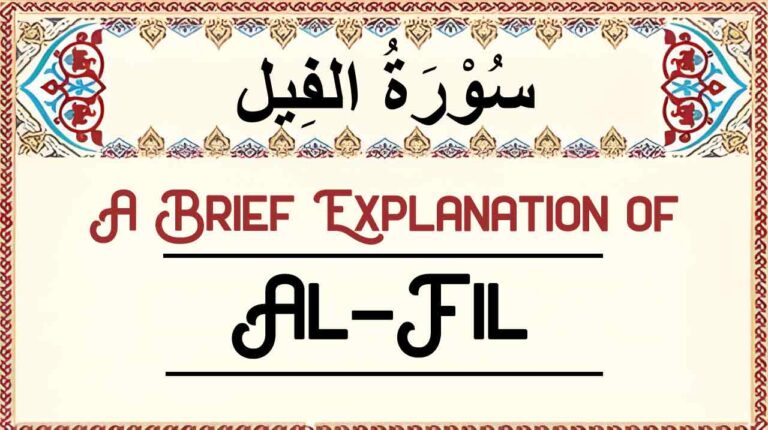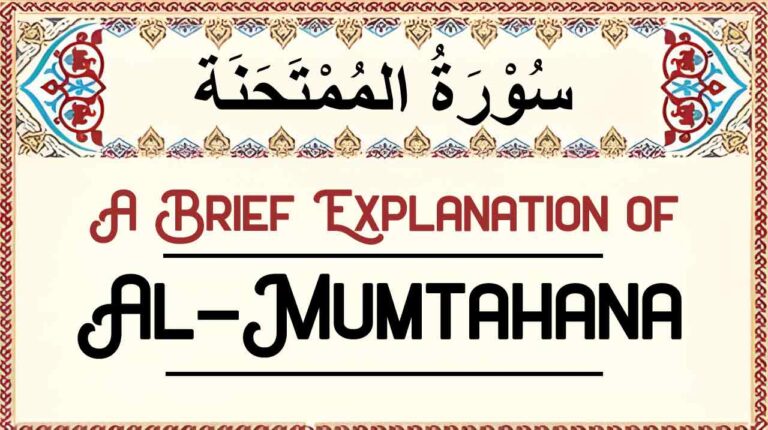Introduction:
Surah Lahab, also known as “The Flame,” is a Meccan Surah with just five verses, but it carries a profound message. It specifically addresses the vehement opposition to Islam by Abu Lahab, an uncle of the Prophet Muhammad (peace be upon him), and his wife, Umm-i-Jamil. In these verses, we find a stark warning and a clear prophecy that eventually came true. This Surah serves as a powerful reminder that faith is not determined by blood ties but by one’s beliefs and actions.
Surah Al-Lahab Explained by Nouman Ali:
The Context:
The revelation of Surah Lahab took place during the early days of Islam, at a time when the Prophet Muhammad (peace be upon him) had just begun openly inviting people to the message of Islam. Abu Lahab and his wife were notorious for their strong enmity towards the Prophet and their relentless efforts to hinder the spread of Islam. They spared no effort to cause harm and create obstacles for the nascent Muslim community.
The Verses:
Surah Lahab comprises five verses, which deliver a potent message:
- “May the hands of Abu Lahab perish, may he (himself) perish.”
- “His wealth avails him not, neither what he has earned.”
- “Soon will he roast in a flaming fire,”
- “And his wife, the bearer of the firewood,”
- “Upon her neck a rope of twisted palm-fibre.”
Explanation:
- The Surah begins with a powerful curse upon Abu Lahab, emphasizing his impending destruction. The term “Lahab” means “flame,” symbolizing his fiery temperament.
- Despite his wealth and worldly possessions, Abu Lahab’s wealth will offer him no protection or salvation. His material wealth cannot save him from divine consequences.
- The Surah then foretells Abu Lahab’s fate, stating that he will suffer in a blazing fire. This fire is understood to be a reference to Hellfire, where disbelievers will face torment.
- Abu Lahab’s wife, Umm-i-Jamil, is described as “the bearer of the firewood.” This could be symbolic of her harmful actions, such as placing thorny branches in the Prophet’s path to harm him.
- The Surah concludes by mentioning a twisted palm-fibre rope around her neck, suggesting her accountability for her actions.
Lessons from Surah Lahab:
Surah Lahab provides several important lessons:
1. Faith Over Family: It underscores the principle that faith and actions are the primary determinants of one’s fate, even when familial relationships exist. Abu Lahab’s blood relation to the Prophet did not exempt him from divine judgment.
2. The Ineffectiveness of Worldly Wealth: The Surah highlights the insignificance of material wealth in the face of divine justice. No amount of wealth or possessions can protect one from the consequences of their actions.
3. Divine Prophecy: The Surah’s clear prediction of Abu Lahab’s fate serves as a testament to the miraculous nature of the Quran. It demonstrates that the Quran contains hidden knowledge that only becomes evident over time.
FAQs:
Q1. Why does the Surah mention Abu Lahab by name? A: The Surah explicitly mentions Abu Lahab because of his notoriety and relentless opposition to Islam. It serves as a stark example of the consequences of disbelief and enmity towards the Prophet.
Q2. What did Abu Lahab and his wife do to oppose Islam? A: Abu Lahab and his wife engaged in various hostile actions, such as verbally abusing the Prophet, placing obstacles in his path, and actively working against the spread of Islam in Mecca.
Q3. Does the Surah’s message apply only to Abu Lahab and his wife? A: No, the Surah’s message is universal and extends to anyone who shares the characteristics and behaviors of Abu Lahab and his wife. It serves as a warning against opposing the truth and harboring enmity towards the message of Islam.
Conclusion:
Surah Lahab is a concise yet powerful chapter in the Quran that serves as a timeless reminder of the importance of faith and actions over familial ties. It highlights the consequences of vehemently opposing the truth and emphasizes that worldly wealth cannot shield individuals from divine justice. This Surah’s enduring message continues to inspire reflection and serves as a testament to the Quran’s miraculous nature.






